World Cup: why millennials will transform football’s greatest event

Roula Khalaf, Editor of the FT, selects her favourite stories in this weekly newsletter.

Ned Newell-Hanson, a 26-year-old Londoner, watches football obsessively but avoids paying for it. Some of his happiest moments are watching Chelsea games on his mobile, ideally on his balcony with a glass of wine but if necessary on a bus, hours after they have ended. (He goes to great lengths to avoid prematurely hearing the score.)
This scheduling allows him to have a normal life while still not missing a moment of his favourite team. He has registered his devices on various relatives’ and friends’ Sky and BT Sport accounts, so that he can see the games free. “I go through my PlayStation, so I can stream to my TV,” he says. “I never watch live television.”
He also spends about as much time playing football video games as watching real matches. The one big difference between him and fellow millennials, he says, is that they rarely immerse themselves in one match for 90 minutes: “A lot of my friends will be on their phones doing other stuff practically half the game.”
Mr Newell-Hanson has just moved to New York, where he plans to watch the World Cup in bars. But his generation’s embrace of new forms of viewing is transforming humanity’s favourite TV event.

Digital disruption has already hit the entertainment, marketing and advertising industries hard. Music revenues, for instance, have plummeted in the past 20 years as streaming replaced CDs. More recently, streaming has revolutionised viewing, too: young Britons now watch more Netflix than all forms of BBC television combined.
Global TV viewing of sports peaked in 2012, according to the Futures Sport consultancy. But football’s World Cup has clung on as the last “appointment to view” — an occasion for people to turn on the TV. Now it too is finally being disrupted, though not destroyed. This summer’s tournament in Russia will probably attract more viewers than any previous World Cup, or indeed any other single event in human history. Even young people will watch it on television. Yet millennials in particular will also consume it in ways that were rare or non-existent during the previous tournament in 2014.
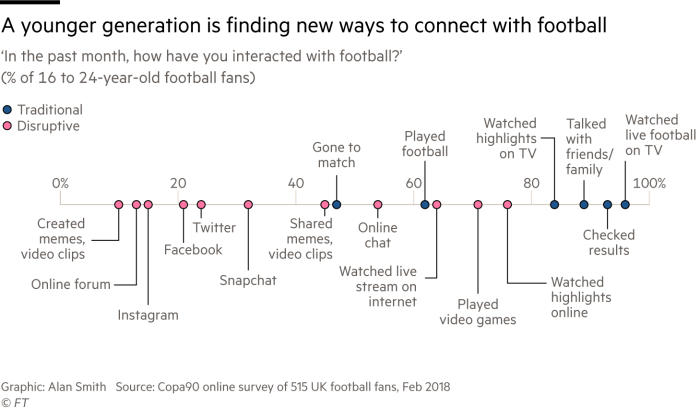
The TV set — the central device of the football economy these past 30 years — has a growing array of rivals. That is frightening for traditional broadcasters and sports-rights owners such as Fifa, the sport’s international governing body, but thrilling for the queue of new companies hoping to benefit.
The World Cup is on free-to-air TV in most countries, and what was once almost solely a European-Latin American event now saturates the planet. The cumulative global TV audience for this summer’s tournament will be 10.8bn, 14 per cent more than during the Brazil tournament in 2014, forecasts Kevin Alavy, global managing director of Futures Sport. He says: “Having Russia as host nation means that more matches will take place at more convenient times of day for European and Asian audiences than those played in Brazil.” Futures Sport’s estimates do not even include online streaming, which has become an increasingly common way to watch matches as viewing quality on smartphones has improved.
Multi-screen experience
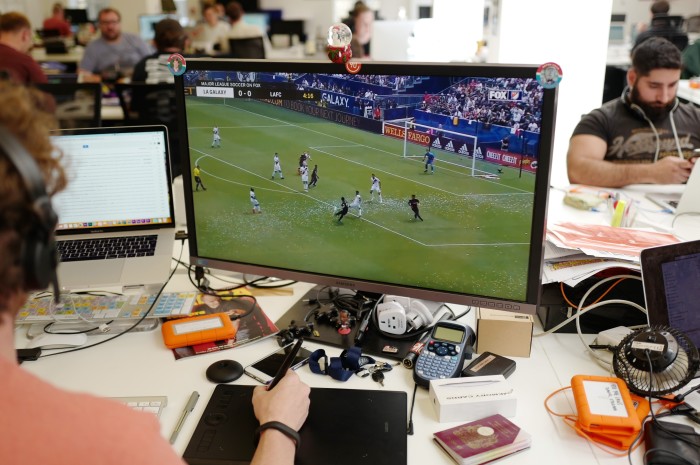
For many younger fans, the match may just be on one of the several screens they will monitor simultaneously, says Tom Thirlwall, chief executive of Copa90, a London-based online media company that focuses on fan culture. Especially for minor games or those played during work time, few millennials will follow every kick of the ball. “That is very much a declining habit: groups sitting in front of the TV in the lounge,” says Mr Thirlwall. In the smartphone era, younger people seldom watch anything for more than a few minutes in a row. If a goal is scored in Russia, they will quickly find the clip somewhere, either on a legal site or a pirated one. They may not even know whether material is pirated.
Watching live matches will be just a fraction of millennials’ engagement with this World Cup. They will also banter about games with friends on social media, bet online and catch up with highlights from earlier games on YouTube, as well as liking videos made by friends who are in a stadium in Russia or some lively bar. Mr Thirlwall forecasts: “The participation will be greater than ever. People will be constantly plugged into the stream of football content that will be coming out.”
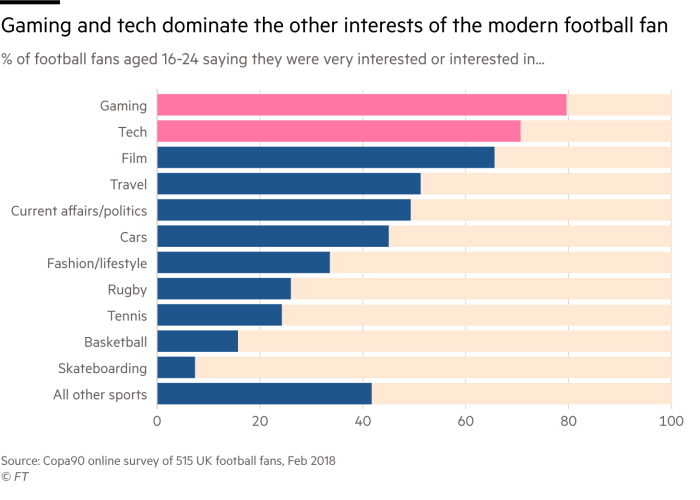
Some of that content will be far removed from Russian football fields. Millennials will use the Fifa 2018 video game to recreate moments from real matches, or listen to music clips with a World Cup connection, or watch a Snapchat or Instagram video made by a player in his hotel room. Football videos on Instagram attracted 2.9bn views in the third quarter of 2017, up 917 per cent in two years, according to the video analytics company Tubular Labs. Other new forms of football-related viewing are also surging, such as watching competitive gaming or “crossbar challenges” (in which players compete to hit the goal’s crossbar).
Global carnival of fans
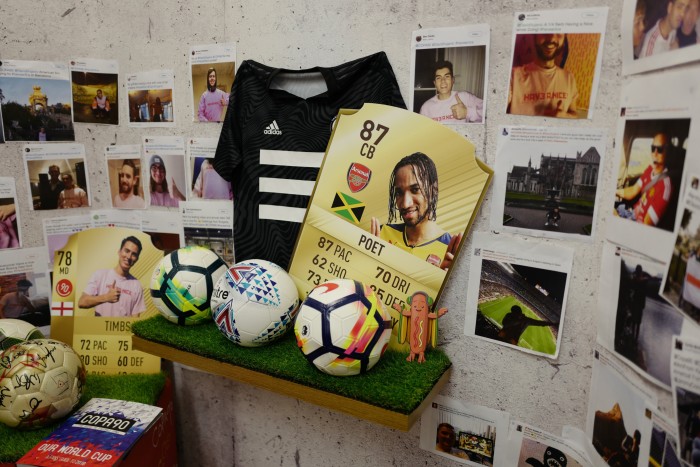
The World Cup has always been about more than just the matches. In fact, many people love it despite the matches. Perhaps above all, the tournament is a global carnival of fans. What happens off the field, in the world’s bars and living rooms, can be more moving and funny and compelling than the frequently boring games themselves. Will Scougal of Snap, parent company of the messaging app Snapchat, sees a trend towards fans “putting themselves and their personalities at the heart of the way they experience the World Cup with their friends”. This summer, more than for any previous tournament, the world’s cameras will be turned away from the field.
Turning away from the field has earned Copa90 150m views a month. The company plans to send about 40 reporters to Russia, and deploy another 300 correspondents globally, but they will be telling fans’ stories rather than covering matches. Narrated videos will show fans from Tehran to Lagos living the tournament. “Telling stories outside the 90 minutes that make the 90 minutes matter more,” says Mr Thirlwall.
In Copa90’s headquarters in London’s Farringdon district there is a little studio kitted out like a hipster bar. Mr Thirlwall says it cost £2,500 to set up — a number that made a visiting traditional broadcaster gulp. From here, Copa90 will make programmes that aim to appeal to millennial sensibilities in a way the BBC does not.
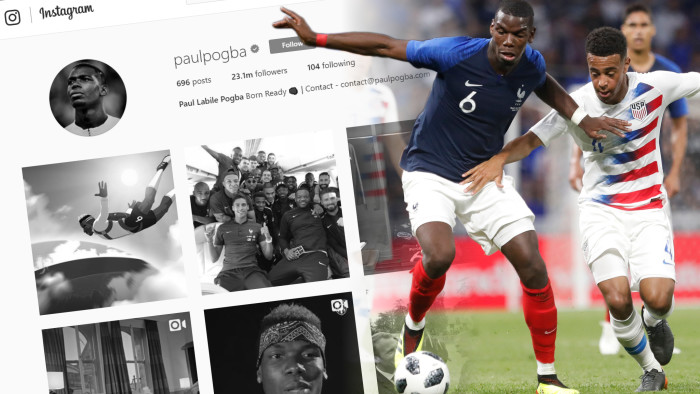
2.9bn
Views of football videos on Instagram in Q3 2017 (up 917% in two years)
58%
Of under-30s admit illegally streaming games
14%
Drop in viewing of Sky’s live TV channels in 2016/17 season
Why TV is failing millennials
For this World Cup, many millennials will tune into their national TV broadcasters to watch matches, but will skip the punditry shows in which former players in suits spout platitudes. “TV produces a product for old people,” says Matt Boffey of brand technology agency Great State. Mr Newell-Hanson agrees: “All my friends make the same comment: ‘We don’t understand why there are so many ex-footballers making banal comments.’” He makes an exception for Gary Neville, but mostly gets his match analysis from podcasts instead. Other millennials will go to fan channels for particular teams or players.
Any company that attracts pre-match, half-time and post-match viewers can rake in advertising dollars. The 2014 World Cup boosted global advertising spend by $1.5bn, estimated the ZenithOptimedia Group of media agencies.
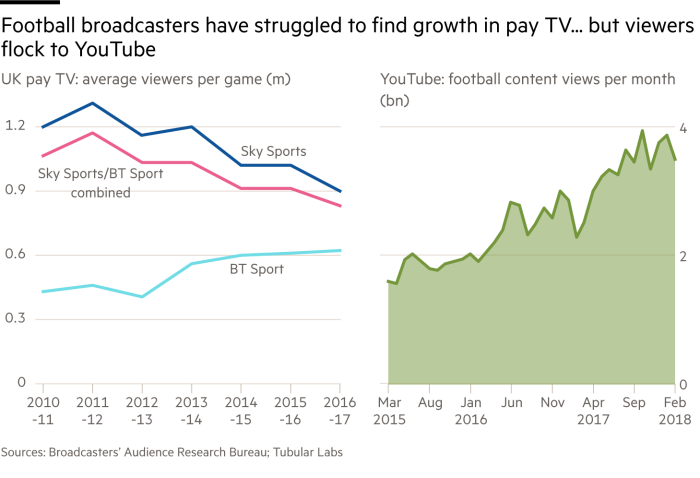
Broadcasters know they need to change with the times. Some have partnered with new actors in the football economy. Telemundo in North America, for instance, has tied up with Copa90. Similarly, the BBC is treating social media not as competitors but as new delivery mechanisms to reach young viewers. This World Cup, the BBC will put match clips on Snapchat and Twitter, as well as stream games online and cover the fans’ carnival, although the corporation’s biggest total audience for the tournament will still be on TV.
Fifa, too, will need to start adapting, as the match footage that is its one lucrative asset becomes less central for viewers. Football’s global authority could start selling TV rights to teams’ training sessions, or to official fanzones in Russia where supporters without match tickets will watch games on big screens in a party-like atmosphere, or organise its own crossbar challenges, suggests one venture capitalist who tracks viewing habits.
Savvy players capitalise on disruption
This World Cup will offer new opportunities to national teams and players. Even the 2014 tournament generated more than 2bn interactions (likes, comments or shares) from 350m Facebook users, says Jerry Newman, Facebook’s head of sports partnerships in Europe, the Middle East and Africa. “That’s the biggest thing we have ever measured in terms of number of people talking about a single thing,” he adds.
Facebook has advised the English, Spanish and Portuguese football associations on how to approach this year’s tournament. Mr Newman tells them: “This is a great opportunity for you to express yourself.” He recommends using new media to let fans peek behind the curtain. For instance, before the England vs Germany friendly in November last year, England’s John Stones used Facebook’s “Live With” platform to connect with his Manchester City teammate Leroy Sané in Germany’s camp. Imagine the reach of a clip of players bantering at the lunch table at their Russian training camp.
A footballer need not even be playing in the tournament to get an audience. During the Euro 2016 championship, the player who attracted the third-most views on Facebook, YouTube and Instagram was the Frenchman Karim Benzema, who missed the tournament through suspension, says Tubular Labs.
Savvy star players could soon capture more of football’s income for themselves, says Stefan Szymanski, a sports economist at the University of Michigan. Cristiano Ronaldo has 120m Facebook followers. That is more than any other person and nearly 12 times more than his native Portugal’s population. Fifa has proposed setting up new international tournaments, but before long, star players might club together to create their own mini-tournaments, forecasts Prof Szymanski.
To do that, players will need to take more control over TV rights. Their current contracts typically allocate all such rights to their clubs and national federations. But players have growing bargaining power. Many millennial fans, raised on global football, have semi-detached from their national teams to follow their club heroes. This summer Mr Newell-Hanson will be cheering for his own country but also for France, the team of his favourite Chelsea player, N’Golo Kanté.
How VR will change the game
The World Cup, football’s biggest event, should keep thriving no matter how technology changes. But the new viewing habits may do more damage to club football, whose economic model relies on fans buying TV subscriptions to watch dozens of games a season. Anthony Fry, who was chairman of England’s Premier League from 2013 to 2014, warns: “People who are younger either don’t watch at all, or if they want to watch a match, they just have to call up five minutes before it starts, and that costs the average person between £1.80 and £2.50 a game [to watch a single match through streaming]. The chance of them paying £70 a month is more and more unlikely.”
The Millennial Moment
Articles in this series examine millennials’ dramatic impact on the world’s economy.
Part one
Introduction, and millennials in charts
Part two
Disruption: The ‘millennial’ World Cup
Part three
Authenticity: The new consumers
Part four
Community: Millennial cities
Part five
Thrift: Saving not wasting
Part six
Experiences: The ‘feeling’ economy
Part seven
Immediacy: Instant money
Part eight
The future of millennial living
Explore the series here.
Millennials in particular increasingly watch without paying: 58 per cent of under-30s admit to illegal streaming of games, according to a report by the consultancy LSU and digital agency e3. Viewing of Sky’s live TV channels in the UK dropped 14 per cent in the 2016/17 season, says the same report.
Last week, after a disappointing initial auction of the Premier League’s TV rights, Amazon stepped in and paid to screen 60 matches in Britain over three seasons for an undisclosed price. This is a small and probably experimental step, but it may herald the entry of the huge US technology groups into the football rights market. For the next World Cup, in 2022, the big tech companies might buy rights to goals or highlights packages. It is feasible that more Britons will watch that tournament on Amazon or Facebook than on the BBC.
There is more disruption in viewing ahead. Before long, virtual reality technology will allow viewers to feel they are standing on the field watching Argentina’s Lionel Messi dribble straight at them. VR will put fans inside the action in a way that two-dimensional viewing cannot. Already at this World Cup, Fifa will film every match in VR. And some broadcasters will use the technology to show live matches but most will probably only employ it for highlights and clips of training sessions, forecasts Alex Kunawicz, co-founder of immersive technology consultancy Laduma. Still, some early adopters wearing VR headsets (Facebook just launched the Oculus Go, costing $199) will be able to transport themselves to Russian stadiums.
As so often with technological change, one issue has not yet been resolved: how to make money out of it. “That’s probably for the next World Cup,” says Jon Reay of Great State. To target millennials more cheaply, advertisers may have to desert traditional TV broadcasters for new football media. Broadcasters and Fifa risk going the way of the record labels that once dominated the music industry. Football is slipping from their grasp.
How will you watch the World Cup?
We asked under-35s how they will watch this summer’s tournament. Here are some of their responses. Please add your own thoughts in the Comments field below.
Artifex, 31, London
I’ll be watching the traditional way on TV, whole matches wherever possible. Probably at a mate’s place or in the pub for some weekend games. Catch up and commentary on BBC sport. Probably only streaming if I’m at work (easily concealed by a spreadsheet). Social media — WhatsApp with my friends if it’s getting lively in a game, not too fussed about Twitter, etc.
Walt, 29, currently living in Dubai, UAE
I’ll be streaming it on my laptop/mobile device, on the go. I have an online subscription with beIN Sports which notifies me when matches kick off. I mostly watch the entire match but I do tend to view three to four-minute video clips on the beIN Sports app should I miss a game. In case I miss a goal, I quickly log on to Twitter and look for GIFs and small clips. I also access Twitter to view tweets from the greats in the game like Gary Neville and Thierry Henry. They constantly share their views and engage with fans from time to time.
Klaas, Dutch national living in Belgium
I will watch it through the internet, using the national broadcaster online live stream. I’ll probably watch full games only in the later knockout stages. Before that, mostly summaries. I’m not so much interested in what happens beyond the field, apart from the political situation in Russia.
JRJ 10 days ago 31, UK national living in Switzerland
I’ll probably stream from a UK provider using a VPN, to get the English language commentary. For matches involving the Swiss team I’ll probably go to a public viewing on a big screen in the city.
Umbrella, 31, currently in China
Will be watching games before midnight, especially if these are big games. Could be at home, or at pubs, depending on the occasion. Will be following most of the action on Twitter and football websites. Used to play video games, but no time now (with a young kid).
Behexen, 23, California
Recently laid off so I can continue to watch every single match as I have in previous World Cups. Most likely all on TV but a few might be streamed. Will be in London for the knockout stage so I will probably watch them all in pubs at that point. I use Twitter to keep up with a lot of news, and watch punditry mostly on streams of South American channels since the quality of punditry here in the US is dreadful.
MillennialOneMillion, 26, London
I’ll be on holiday in Seville at the start of the World Cup, so will be catching it in bars etc. When back at home, I’ll be watching any games that I’m interested in with friends in a pub (England and Germany).
Ewgum, 25, Canada
I expect to stream it online through CBC’s website and use that on whichever device I am closest to. Twitter is where my poor followers will encounter all my unsolicited opinions. I’ll focus on my top picks: France, Spain and Belgium. I typically follow a lot of British journos, so it’ll be difficult to miss the struggles of the Three Lions. Lastly, special mention to the African teams, as I must root for them (us?), but I am not optimistic of any of their chances.
The FT is looking to hear from young readers: how do you spend your money, and how financially stable do you feel? Contribute to our reporting here.
Are you interested in news and analysis about the markets? Sign up to the FT Markets WhatsApp group. Whether you are a subscriber or not, the stories will always be free (outside of the FT’s subscription paywall).
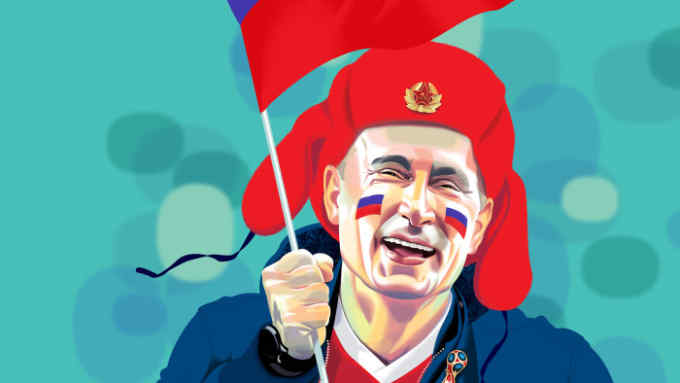
Comments